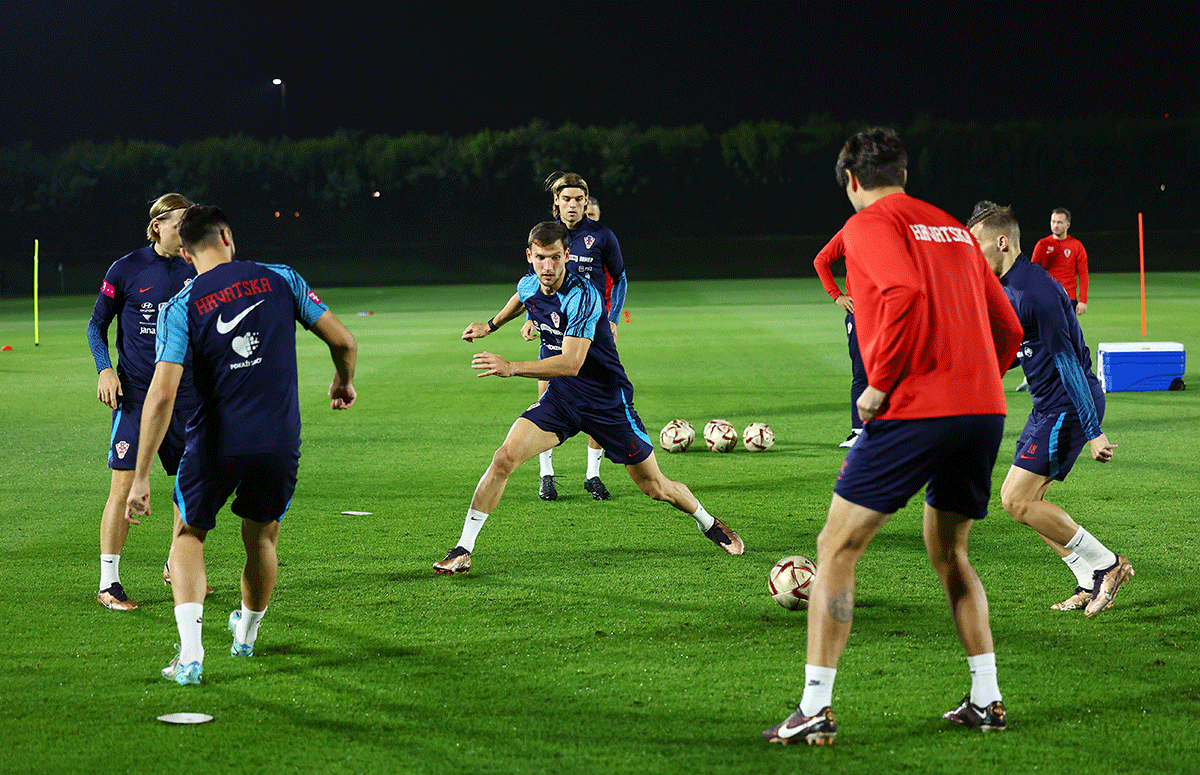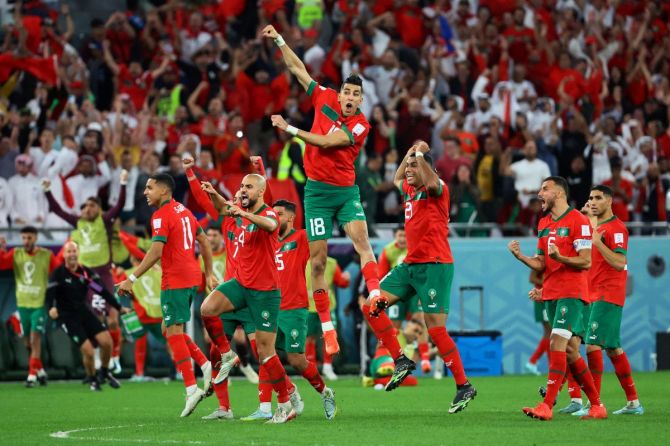
Croatia and Morocco are the surprise guests in the World Cup's final four but, as the Croatians discovered in 2018 and many other long-shot semi-finalists have before them, the two remaining steps to become world champions can be the steepest.
In the 21 editions of the World Cup over 92 years featuring 79 nations, there have still been only eight winners and only 13 have made it to the final. Spain were the last to join the elite group of champions in 2010 after France in 1998 and Argentina in 1978.
Since then there have been a sprinkling of "outsiders" who made it to the last four, with almost all of them failing to go any further.
Poland and Belgium lost to eventual winners Italy and Argentina respectively in 1982 and 1986 and while as former winners England would not like to be included in the "long-shots" group, it was still a surprise when they made the semis in 1990, where they lost to West Germany.
It was in 1994 though that the apple cart really looked to have been overturned. Bulgaria arrived in the United States having never won a World Cup match in 16 attempts and duly chalked up an 11th defeat in their first game.
They then turned things around utterly, winning two group games, beating Mexico on penalties in the last 16 and then memorably stunning holders Germany in the quarter-finals.
On the other side of the draw Sweden arrived after a last-16 shootout win over Romania.
Normal service was resumed in the semis though as Italy ended Bulgaria's dream run and Brazil edged out Sweden.
Bulgaria, with their Hristo Stoichkov-inspired golden generation ageing, went out in the group stage with one point four years later and have not qualified for the finals since.
Yugoslavia made the semis in 1930 and 1962 but after the country broke up, Croatia appeared as an independent nation for the first time in 1998.
The highlight of their emotional run to the last four was a superb 3-0 quarter-final victory over Germany, before they were eventually beaten 2-1 by hosts France in the semis.

The 2002 tournament was another where two total outsiders made the last four but were eventually stopped in their tracks by tournament juggernauts.
Joint-hosts South Korea grew in confidence after topping their group and then stunned the world by beating Italy in the last 16 with an extra-time golden goal and then Spain on penalties to become the first Asian team to make the semis.
A quarter-final between Senegal and Turkey meant another new semi-finalist was guaranteed, and it was Turkey who progressed.
Germany and Brazil then pulled rank, beating Korea and Turkey respectively, though both only 1-0. It had been only Turkey's second appearance in the World Cup and they have not been back since.
Portugal reached their second semi in 2006, losing to France while four years later the historically "surprise" semi-finalists were Spain, who had never previously made it (though they were in the second group stage in 1950) and twice-champions Uruguay, who last did in 1970.
Spain, though, arrived in South Africa as European champions and it was hardly an upset as they finally shook off decades of World Cup failure to beat the Netherlands in the final.
Croatia made it to the semis in 2018 and went one better than 20 years earlier by beating England, only to lose to France in the final.
They are back this year, up against Argentina, but it is Morocco flying the flag for the true underdogs as they are the first African team to make the last four and have done it in style by dispatching European heavyweights Belgium, Spain and Portugal.
France and Argentina, each seeking a third title, will be favourites to end the fairy-tale runs but neutrals everywhere will be surely willing one of the outsiders triumph and then go all the way and become the ninth world champion.











